In an exclusive interview with Sky Sports, Steve Cotterill opens up about his long career. The former Burnley, Bristol City and Shrewsbury boss on the importance of adaptability, the need for a clear idea rather than a clear identity, and managing the human being…
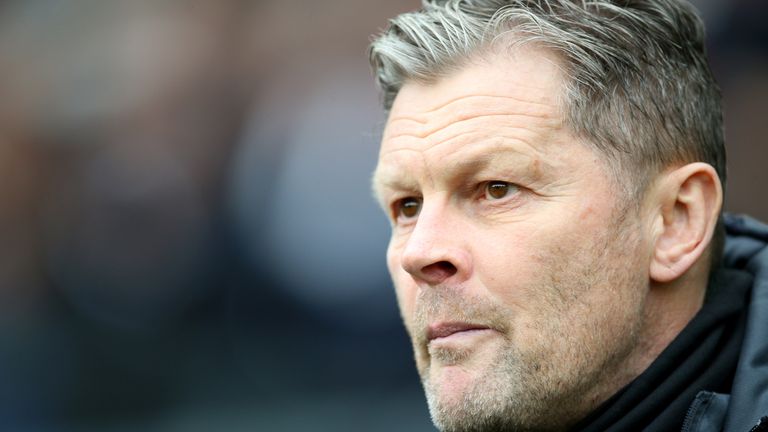
Image: Steve Cotterill shares some of the lessons that he has learned in management over his 29-year career
“It will be 29 years this year,” Steve Cotterill tells Sky Sports. He is reflecting on a managerial career spanning nearly 900 games and five promotions. Speaking to the 59-year-old coach at a hotel near his Bristol home, the overriding sense is of a man hungry for more.
“I really miss my football. The job consumes you, it really does. It is more than a job. It is a way of life. You spend countless hours analysing games, preparing strategies for the next game. Even now, I go to at least one game every week. Often two.”
Cotterill won a trio of his promotions while masterminding Cheltenham’s rise through the divisions. There was a title with Notts County and a double with Bristol City, winning League One and the Football League Trophy at Wembley. “Incredible memories.”
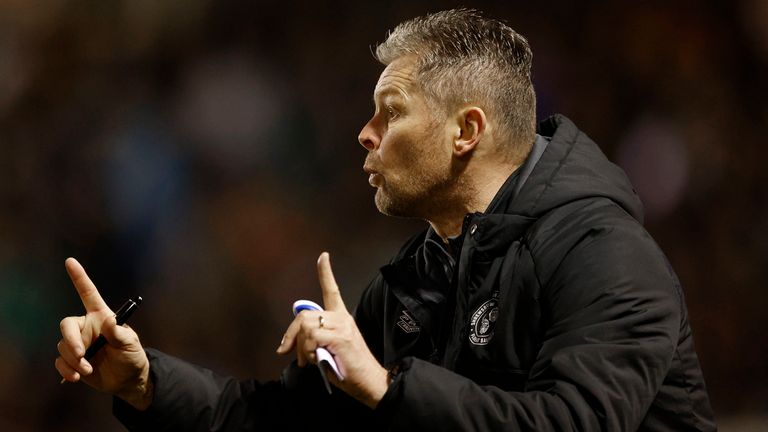
Image: Steve Cotterill has a 40 per cent win percentage over his near 900-game career
But it is more than silverware that motivates him. “Watching your players grow into strong and confident young adults, that is one of the best feelings in the world. Watching a team develop is rewarding too. You can make some really special relationships.”
The conversation is wide-ranging. He talks tactics, the challenge of playing against a low block. “You need quick and incisive movements, attackers displacing defenders with intelligent runs.”
There are the training-ground mantras. “It won’t be alright on the night if you can’t do it right in training under less pressure.” The broader principles. “You have to play the long game on culture.”
When touching upon his playing days, there is a slightly embarrassed smile when it is pointed out that his Premier League strike rate – three goals in seven games for Wimbledon in the inaugural campaign – is technically better than Didier Drogba and Wayne Rooney.
But it is management that gets Cotterill animated. He makes a convincing argument that he is better at it now than when having such success at Cheltenham. “I am more relaxed with players now I have years of dealing with them. You end up fathering them more.”
He explains: “When you are young, you are still finding your way, like they are. Empathy is a big part of management now. The world is changing. I have had many players cry in my office and given them a hug. They are not just footballers. They are people who play football.”
Cotterill sees himself as “a manager who coaches” – and that feels significant. Clubs are now searching for head coaches but these are human beings not mere pieces on a chess board. Man-management remains key. “I do think experience is so important,” he says.
“You don’t have to compete with any of those 20-year-olds that are running around the pitch. You just have to look after them and make sure they know their jobs, putting them in the right areas at the right time and involving them in the right patterns.”
Cotterill’s attitude is shaped by his background. “When you start lower down, you are not just managing the team. People come and see you about the kit design. If there is nobody to delegate to, then you have to take it on if you want the best for your club.”
It has guided his decision-making. At Burnley, when star player Robbie Blake was sold, Cotterill spent half the funds on infrastructure. “They asked me what I wanted to do with the money and I asked for a new pitch,” he recalls. “They still train on it now.”
The other half was spent on Ade Akinbiyi. When he was sold for a profit, Cotterill reinvested a third of the proceeds and “banked the rest for a rainy day.” In his most recent job at Shrewsbury, where he was popular with players and supporters, it was a similar story.
“We had some big games in the FA Cup, Liverpool on TV, and that enabled us to invest in the training ground. People do not always see the benefit of spending on drainage, improving training surfaces, but when you bring lads in and want to sign players, it helps.”
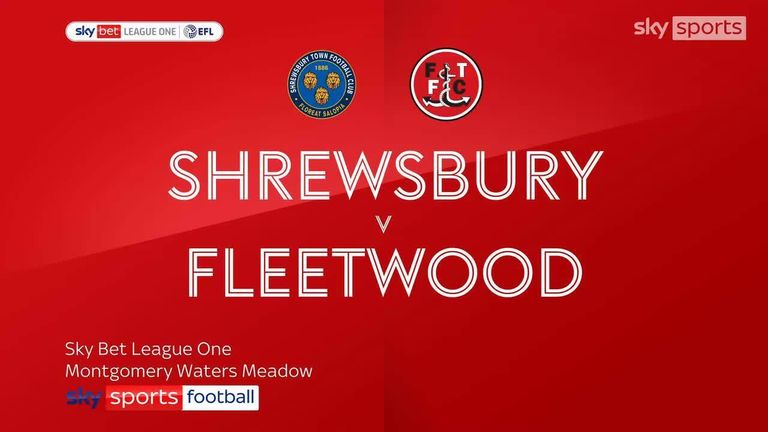
Highlights of the Sky Bet League One match between Shrewsbury and Fleetwood
On the pitch, there is a similar pragmatism. “I do not want my team to have a clear identity,” he says. “I want my team to have a clear idea.” The distinction might not seem significant but it is. One is adaptable to the situation and the circumstances, the other is not.
“There is so much opposition analysis now, if you have a clear identity, people will know where they can press you and if you know where your first pressing point is, your second pressing point, your third pressing point, then your opponent knows it too.”
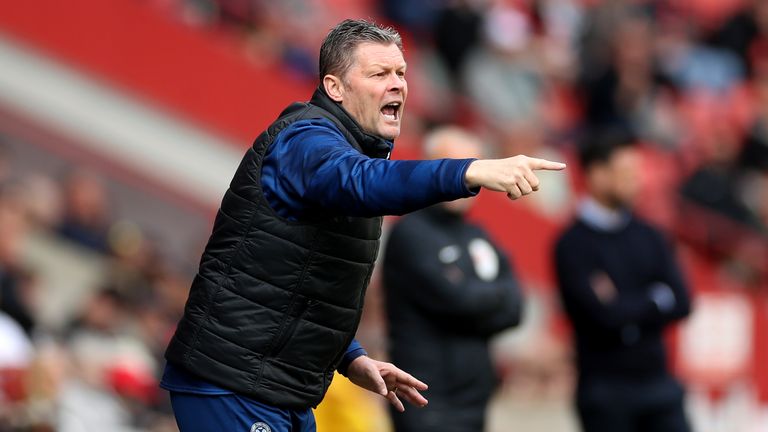
Image: Steve Cotterill preaches the importance of tactical flexibility as a manager
Cotterill undoubtedly understands the principles that underpin the modern game. Indeed, he was among the first cohort to achieve the UEFA Pro Licence over 20 years ago now and even did his final presentation on the eight dos and three don’ts of pressing.
His own views have since been forged by experience.
“I think you can play football in many different ways and I have had to do that. You can be attacking, you can be defensive. You can be aggressive, you can counter-attack. You cannot say one is good and one is not. They can all be good if you do them well.
“If you have a clear identity then you can only play football one way. I think a winning system is to put the players on the pitch in a way they are comfortable with. The players have to know what to do. That means changing what you want to do sometimes.
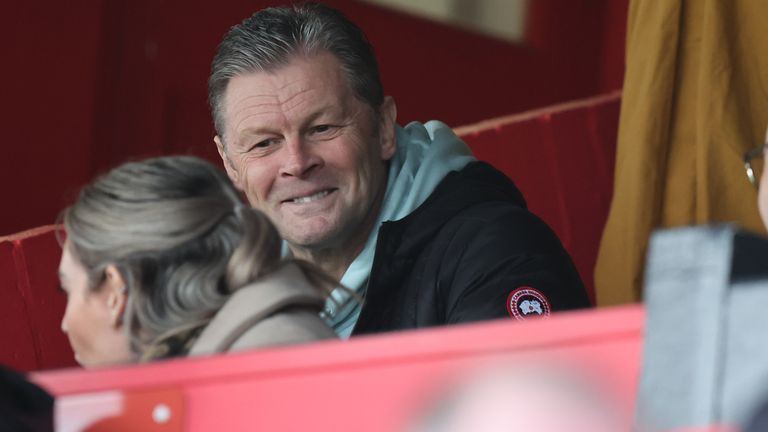
Image: Steve Cotterill watches the game between Cheltenham and Shrewsbury on Boxing Day
“For example, you might have players under contract for the next two years who nobody wants to buy. You have to pick how you are going to play with them and win with them when the previous manager has gone because these players were not winning.
“How are you going to get around that? You might want to play another style but you cannot do it. What you have to show is a willingness to be flexible with your formation and your tactical approach. That is management. That is about having a clear idea.”
It helps to explain why his successes have come in different ways.
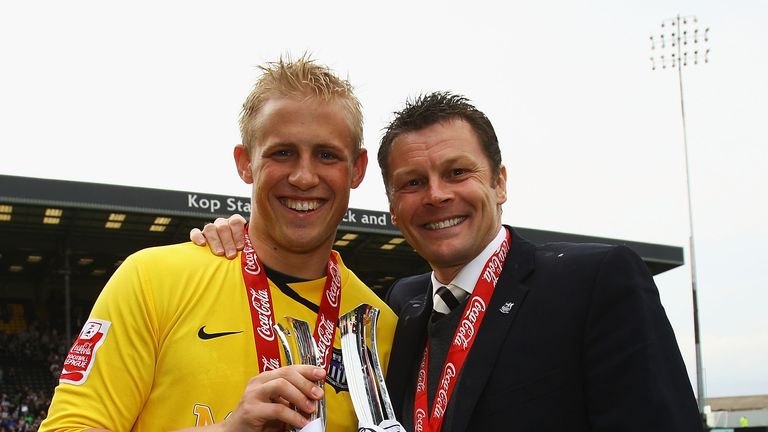
Image: Kasper Schmeichel and Steve Cotterill celebrate title success at Notts County
At Notts County, he inherited a dressing room full of big characters, from Kasper Schmeichel to Lee Hughes. “They needed a manager more than a coach, someone strong enough to lead the dressing room.” Seventh when he arrived, 14 points off top spot, they were champions in April, finishing 10 points clear of second.
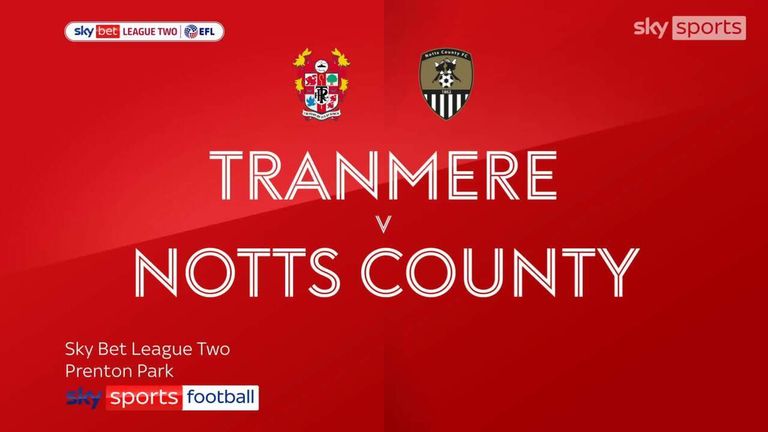
Highlights of the Sky Bet League Two match between Tranmere and Notts County
Prior to that, Burnley had been more challenging. He turned down offers from Sheffield Wednesday and Leicester out of loyalty to the chairman. “We weren’t far off administration and the average age was high. We played different football there to Bristol City.”
Ashton Gate provided some of his best memories. “It was the manner of it that was so good.” He could mould that team. “We sold Sam Baldock for £2m and reinvested £1.5m on seven players. We brought them in, we knew what we wanted,” he says.
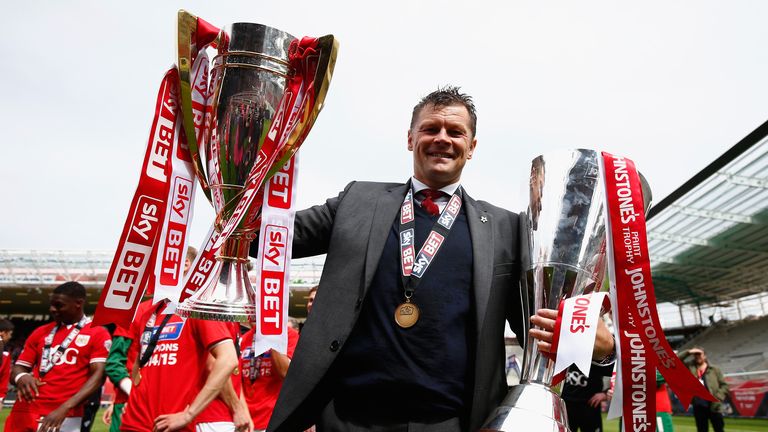
Image: Steve Cotterill celebrates with two trophies at Bristol City in 2015
“The danger with recruitment is replicating what you have already got rather than buying what you really need. I found it easier if I recruited by numbers. I know what I want my No 2 to do. I know what I want my No 6 to do, my No 8 to do, my No 9 to do and so on.”
- Transfer Centre LIVE! | Paper Talk
- Stream Sky Sports on NOW | Get Sky Sports
- Download the Sky Sports App
There is similar pride at the job done at Shrewsbury. He arrived in November 2020 with the club one place and one point off the bottom. After keeping the club in League One, he walked away in the summer following a top-half finish, their second-best in 33 years.
“I am in credit,” he says. The same can be said of that 29-year managerial career and the message from Steve Cotterill is that he is hungry to get restarted. The next challenge awaits.
Sourse: skysports.com